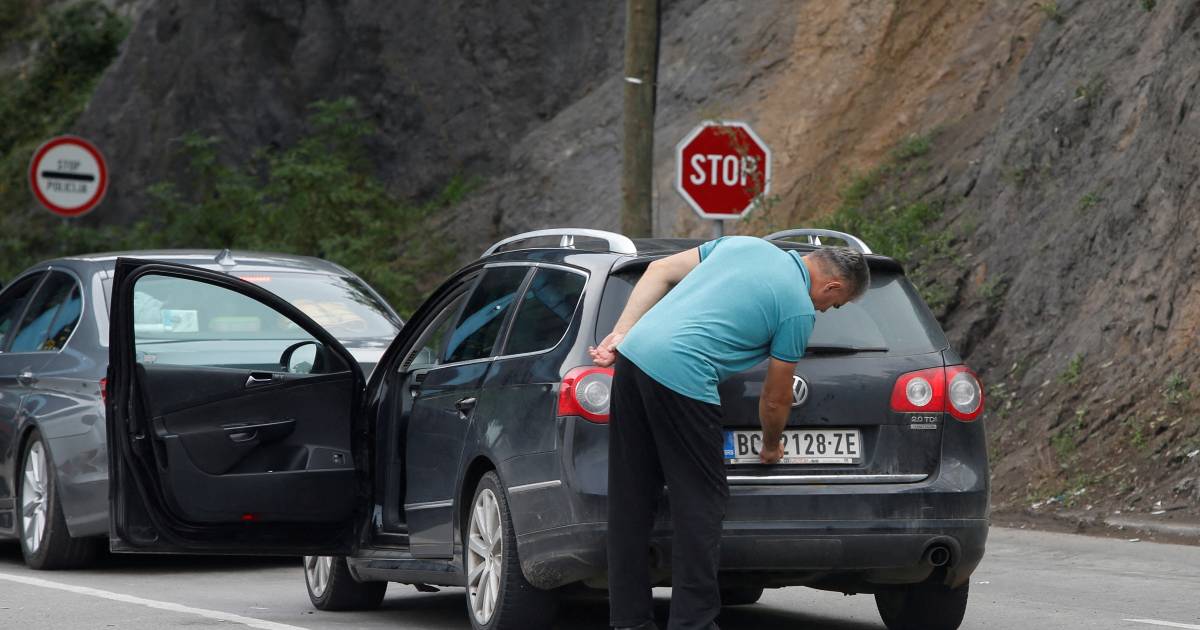Kosovo plans to fine Serbian residents Do not drive with Kosovo number plates Adjourned for two days. The decision follows a request by the United States to continue negotiating a settlement to the conflict. Kosovo police wanted to impose fines from 08:00 on Tuesday, but are now waiting.
“I agree with the request for a 48-hour postponement of fines for illegal license plates. I look forward to working with the United States and the European Union to find a solution within the next two days,” Kosovo Prime Minister Albin Kurdi said on Twitter Monday night.
Hours of crisis talks in Brussels over the drawn-out license plate dispute between Serbia and Kosovo came to nothing on Monday, with EU foreign affairs chief Joseph Borrell, acting as mediator, frustrated. He demanded an ‘immediate suspension’ of Kosovo’s plans to impose fines for not having the correct number plates.
Recognize an independent Kosovo
Tensions between Kosovo and Serbia have risen again in recent weeks. Kosovo wants to insist that Serbian residents also drive with Kosovar number plates, but they oppose this. In protest, hundreds of police officers and other civil servants have quit their jobs in the Serb-dominated northern part of Kosovo. The Serb minority in Kosovo is also resisting, including border blockades. By recognizing Kosovo license plates, Serbia automatically recognizes the existence of an independent Kosovo. That is the biggest obstacle in Serbia right now.
The relationship between Serbia and Kosovo is very complicated. The majority of Kosovo’s population (90 percent of its 1.8 million people) is ethnic Albanian. At the same time, Serbs consider Kosovo a sacred historical site. In post-World War II Yugoslavia, Kosovo was an ‘autonomous province’ of Serbia. However, Belgrade did everything to suppress the ever-increasing Albanian nationalism.
After the breakup of Yugoslavia and the rise of Slobodan Milosevic, relations deteriorated further. This eventually led to the 1998 and 1999 Kosovo War and the NATO bombing of Serbia. In 2008, Kosovo unilaterally declared independence. It is recognized by many countries (more than a hundred), but not by China, Russia and Spain. They also struggle with rebellious areas.
Nobody wants another war in the Balkans. It is not for nothing that there is a NATO mission with 3,770 troops at the moment, which is ‘closely monitoring the situation’ and ready to ‘intervene if stability is threatened’.
Check out our news videos in the playlist below:
Is Unlimited Access to Showbytes Free? What can!
Log in or create an account and never miss a thing of the stars.







